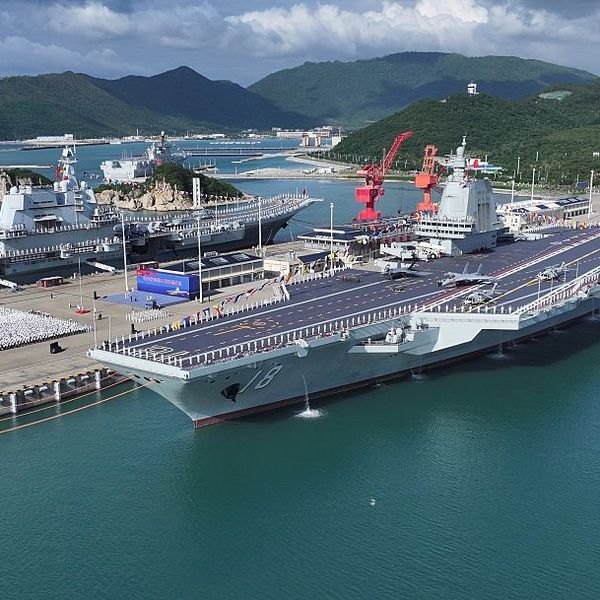OPINION — May 2024 was China’s month for international diplomacy. President Xi Jinping’s European tour that included meetings in France, Hungary, and Serbia, focused on enhancing “mutually beneficial cooperation” between China and Europe. The June elections for a new European Parliament, that may determine the European Union’s orientation toward China, understandably was part of the motivation for Mr. Xi’s outreach to Europe.
Criticism of the U.S. was also on Mr. Xi’s agenda. On May 7th, Mr. Xi penned an op-ed for Serbia’s Politika newspaper writing that, “we must not forget that 25 years ago today, NATO (U.S) brazenly bombed the Chinese Embassy in Yugoslavia. The Chinese people value peace but will never allow historical tragedies to happen again.” Mr. Xi was aware that President Bill Clinton reached Chinese President Jiang Zemin – who was not reachable, refusing to take Mr. Clinton’s call, until May 14 — and apologized on the phone for the accidental NATO bombing of the Chinese Embassy in Belgrade.
Premier Li Qiang’s summit at the end of May, the first since 2019 with Republic of Korea (ROK) President Yoon Suk Yeol and Japanese Prime Minister Fumio Kishida, focused on trade and security issues and enhancing three-way cooperation. Li Qiang urged Japan and the ROK to reject “protectionism” and embrace free trade, while clearly stating China’s geopolitical objective with this diplomatic outreach. “We need to promote multipolarity in the world and oppose the formation of blocs or camps,” he said.
Mr. Li clearly was referring to the U.S. and the establishment of AUKUS (Australia, United Kingdom, and U.S.), the Quad (Australia, Japan, India and U.S.), the Washington Declaration (ROK and U.S), and the Camp David Agreement (ROK, Japan and U.S.).
It's not just for the President anymore. Cipher Brief Subscriber+Members have access to their own Open Source Daily Brief, keeping you up to date on global events impacting national security. It pays to be a Subscriber+Member.
An interesting and positive development was what China, South Korea and Japan said in paragraph 35 of the Joint Declaration of the Summit: “We affirmed that maintaining peace, stability, and prosperity on the Korean Peninsula and in Northeast Asia serves our common interest and is our common responsibility. We reiterated positions on regional peace and stability, denuclearization of the Korean Peninsula and the abductions issue, respectively.” North Korea immediately responded, condemning China, Japan, and South Korea for discussing denuclearization of the peninsula, calling their joint declaration a “grave political provocation” that violates North Korea’s sovereignty. This was a rare criticism of China, North Korea’s only ally and economic lifeline.
Never to disappoint, North Korea just prior to the summit, notified Japan that it would launch a rocket carrying a satellite sometime between May 27 and June 4. Tokyo and Seoul responded quickly, telling Pyongyang to halt the launch, which they said was in violation of U.N. Security Council resolutions. On May 27, North Korea announced that its attempt to put a second spy satellite into orbit had failed when the rocket exploded.
And in Singapore on May 31, Secretary of Defense Lloyd Austin had a seventy-five-minute meeting with his Chinese counterpart, Defense Minister Dong Jun. China described the meeting as “positive, pragmatic, and constructive. The two sides both agreed that a stable U.S.-China military-to-military relationship is important.”
What detracted from China’s economic and political outreach to Europe, Japan and South Korea, and the constructive meeting of Secretary Lloyd Austin with Defense Minister Dong Jun was China’s reaction to the May 20th inauguration of Taiwan’s new president, Lai Ching Te.
On May 23, China conducted a large-scale military exercise – Joint Sword 2024A – saying it: “served as strong punishment for separatist acts of Taiwan independence forces and a strong message against the interference and provocation by external forces.”
Subscriber+Members have a higher level of access to Cipher Brief Expert Perspectives and get exclusive access to The Dead Drop, the best national security gossip publication, if we do say so ourselves. Find out what you’re missing. Upgrade your access to Subscriber+ now.
China deployed 49 aircraft and 19 PLA Navy vessels encircling Taiwan and Wuqui and Dongyin islands, saying this was a comprehensive law enforcement operation with participation of 16 Coast Guard vessels from Fujian Province.
This was China’s third military exercise encircling and attempting to intimidate Taiwan. The inclusion of Coast Guard vessels from Fujian Province, working with the PLA Navy, appears to be preparations for a potential quarantine, blockade, or invasion.
This recent military exercise and China’s continued aggressive acts toward the Philippines regarding the Second Thomas Shoal is obviously of concern to the U.S., an ally of the Philippines. Footage of multiple episodes where Chinese ships have used water cannons and lasers on Philippines vessels attempting to travel to disputed islands and reefs has generated international anger at China’s bullying tactics.
China’s support to Russia for its war of aggression in Ukraine and its military exercises around Taiwan and bullying of the Philippines in the South China Sea are detracting from China’s efforts to garner greater support from the Global South and other non-aligned nations. Indeed, Mr. Xi’s outreach to Europe and Mr. Li’s summit with South Korea and Japan were designed to present China in a more favorable light.
The trilateral summit with China, South Korea and Japan did produce an opportunity for these three countries to work together again, as they did in the Six-Party Talks, to bring regional peace and stability, with the eventual denuclearization of the Korean Peninsula. This is an opportunity for China, an ally of North Korea, to use its influence and convince North Korea’s leader, Kim Jong Un, to return to negotiations, with the prospect of sanctions relief for a moratorium on fissile production for nuclear weapons and a halt to ballistic missile launches.
This column by Cipher Brief Expert Ambassador Joe DeTrani was first published in The Washington Times













